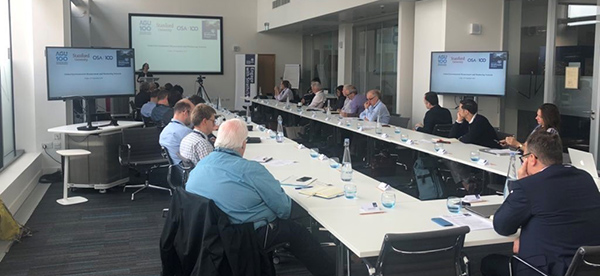

The Fraser of Allander Institute (FAI), along with Stanford University and The Optical Society of America, have launched the Strathclyde Global Environmental Measurement and Monitoring (GEMM) Network (September 13).
The objective of GEMM is to develop a hub of international partners to assess how advances in monitoring technologies can contribute to better environmental data and help inform decision making to tackle the climate emergency.
Following last year’s successful launch of the Northern California GEMM Center at Stanford University during the Global Climate Action Summit (https://www.eurekalert.org/pub_releases/2018-09/tos-tos091318.php), this year’s launch of the Strathclyde GEMM Centre coincided with the announcement that Glasgow has been selected as the host city for a major United Nations climate change summit in 2020.
At the launch event, a new Centre for Doctoral Training in Global Environmental Monitoring and Policy was announced. It will take on its first cohort of doctoral students in the 2019/20 academic session.
Speakers included representatives from the California Government, Scottish Enterprise, the Scottish Environmental Protection Agency, M-squared Lasers, the Scottish Government, and the National Physical Laboratory, as well as academics from Stanford University, UC Berkeley, MIT, Laval University, the University of Sheffield, the Dodd-Walls Centre for Photonic and Quantum Technologies, and the University of Strathclyde.
Dr Scott McGrane, a lecturer in the Department of Economics at Strathclyde and visiting researcher in the Applied Physics Department at Stanford University. said, “The growing threat from the climate emergency necessitates immediate action. Governments, industry, academics and society must work together to appraise the ways we can adapt our societies and economies to limit our emissions and adapt to cope with the unavoidable impacts of our changing climate.
"The development of effective climate policies will rely on a clear understanding of not just the science but the implications – and opportunities – for business and policymakers.
"These communities often exist in silos, so the aim of these GEMM centres are to pull together leading expertise from policy, environmental science, metrology and economics. Through GEMM, we are hoping to advance the efforts to tackle the climate emergency across different regions of the world.”